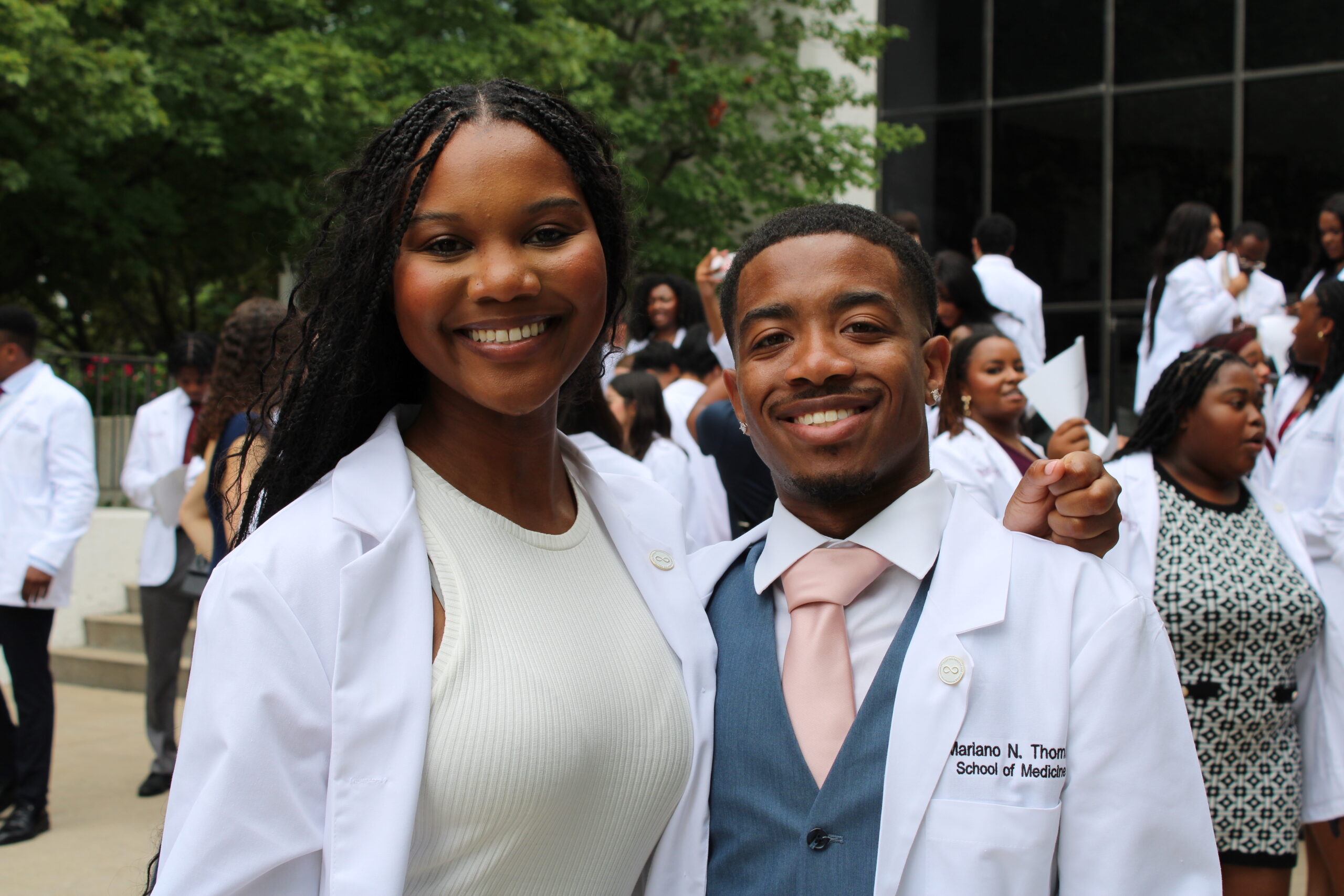
At Meharry Medical College School of Medicine, we prepare students not just to become physicians—but to become compassionate, community-minded leaders in medicine. Rooted in more than a century of tradition, Meharry’s Doctor of Medicine (MD) program offers a rigorous, comprehensive curriculum enriched by real-world clinical experiences and a deep commitment to service. Here, students are trained to meet the healthcare needs of underserved communities with excellence, empathy, and purpose.
As a Meharrian, you will learn from accomplished faculty who are deeply invested in your success and gain hands-on experience in settings that reflect the diverse challenges facing our nation’s health systems. Through immersive education, community engagement, and research that explores the root causes of health disparities, you’ll be equipped to make a meaningful impact from your very first day in practice. If you’re ready to join a legacy of excellence and lead with heart, Meharry is ready to welcome you.
Meharry Medical College School of Medicine curriculum called Next S.T.E.P. (Successfully Training Equipped Physicians) is a diagnosis-based schematic presentation where lessons are presented in the format of the 120 most common clinical problems encountered by physicians. Hallmarks of the curriculum include decreasing the number of lectures and replacing them with active-learning strategies such as team-based teaching. Meharry is the first HBCU medical school to adopt the curriculum which merges basic science and clinical lessons.
The curriculum is divided into successive academic courses across two phases over four years, each course building on the subject material and experiences of preceding years. The curriculum is comprised of three phases: Phase 1-Foundational Curriculum); Phase 2-Clinical Clerkships Curriculum); and Phase 3-Post-Clerkship Curriculum
The educational competencies of the medical education program leading to the M.D. degree emphasizes medical knowledge, patient care, interpersonal and communication skills, professionalism, systems-based practice, and practice-based learning and improvement. The candidate for the M.D. degree will be required to show competence in each of these areas, as follows:
Medical Knowledge
Patient Care
Interpersonal and Communication Skills
Systems Based Practice
Practice Based Learning and Improvement
Information about scholarships and financial aid opportunities is available through the Meharry Office of Financial Aid.
Office of Admissions & Recruitment
Meharry Medical College
Division of Student Affairs
1005 Dr. D. B. Todd, Jr. Blvd.
Nashville, Tennessee 37208-3599
Fax: 615.327.6228
Email: admissions@mmc.edu
